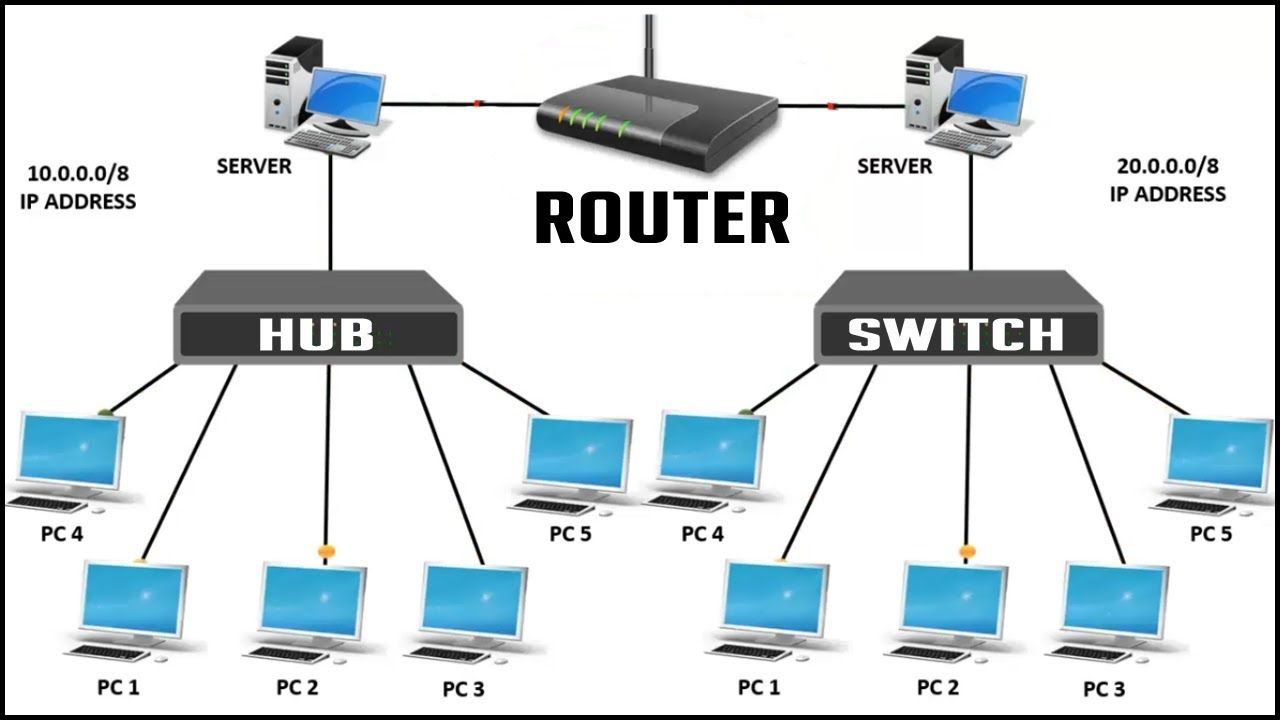With the rapid advancement in technology, a corresponding increase in options available to a consumer is surely unavoidable. It has become the norm to compare products and their specifications to determine which products are most suitable for the consumer.
Recently, there has been an increase in the type of network devices available on the market. However, when it comes to switches and routers, one can browse through the diverse selection of network devices in UK to find the best options.
Famously known as ‘bridging hubs,’ switches can link several devices together and allow them to communicate. It can have multiple ports to which several devices can be connected. On the other hand, Routers interconnect gadgets to the actual network, i.e., the internet, and even to each other.
As seen in a school or office setting, switches are used to link several computers together (and devices like printers) within the same network. The type of product bought largely depends on the exact requirements of a buyer.
Now that you have the basic idea behind the two types of network devices. How exactly can you choose which one is the best for your needs? Again, comparing the devices and their specific strengths can make this clearer.
The Main Purpose of Use
If you desire a tool that can connect many devices at the same time within the same network, using a switch is the most suitable option. For the purpose of tying together various networks and switches, a router is your best bet.
A router literally ‘routes’ traffic between multiple networks. Routers are commonly referred to as ‘intelligent’ devices as they can determine the quickest route between networks before using the route to manage data.
LAN vs. WAN
Routers have the upper hand when it comes to LAN or WAN ports. While switches link together computers together strictly within a particular local area network, routers can be used in LAN (local area network), WAN (wide area network), and even MAN (metropolitan area network).
This can be helpful when it comes to consumers who wish to connect to larger networks.
The Speed of Connection
The speeds of the switches and routers are part of a broader topic. From a superficial point of view, the speeds at which both operate can vary according to the type of network. However, when a switch and a router are compared in a LAN setting, a switch works faster.
When comparing a switch in the LAN setting (the only setting it can operate under) with a router operating within the WAN or MAN setting, the router is faster. But, again, the consumer’s requirements are the sole decider.
The Cost
With the higher number of features and capacities offered by the router, it is easy to understand why the cost of routers would be more expensive than that of switches. For the average working man, the price of a product is one of the top things to consider when planning to buy it.
Therefore, if the switch can fulfill the consumer’s needs, it would be the better option in terms of saving money. For example, if you are finding network devices in the UK, you may consider many points, but the cost would impact each decision you make.
Network Connectivity
Wired vs. wireless? An important question for many. A device that is capable of linking both types of networks (wired and wireless) is surely a winner. This provides more opportunities for the user, but it can increase the performance of the device.
A router offers the chance to connect not only wired networks but also wireless networks. The performances of wired and wireless networks are different and can be further compared. On the other hand, switches lack this ability, and their use is restricted to wired networks.
The decision-making process when it comes to choosing between a switch and a router can seem complex. However, when the various characteristics of the two are compared, you can figure out which device fits your needs best. In addition, it is very important to figure out the exact purpose of the device.
Whether it is needed for a large-scale project, such as in business, or for relatively smaller projects, such as within home environments.
Other aspects need to be assessed too—whether the device is to be used within a smaller network, such as in a LAN, or over a wider network, such as WAN. For most people, the cost of a device can highly influence their purchase.
While routers do offer a greater number of features, they are relatively expensive, which can put many people off from buying them. Finally, in this busy age of technology and wireless devices, the ease of connection of the device is vital.
Whether the device can connect to wired networks or wired and wireless networks can be crucial for many. Both switches and routers are good options, and both offer ease of connection.
Would you like to read more about network devices in UK-related articles? If so, we invite you to take a look at our other tech topics before you leave!
![]()














